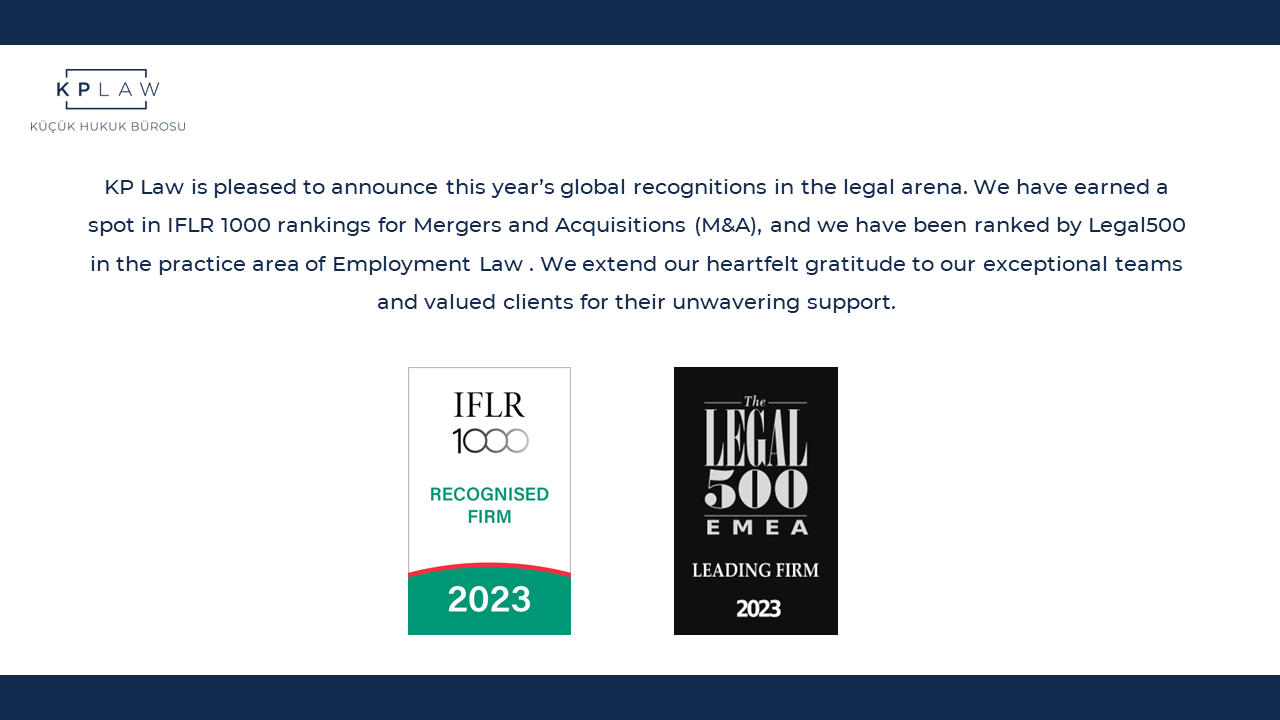News & Insights
The Authority Of The Competition Board To Conduct On-site Inspections, Hindering The Inspection And Sanctions
“Even if the deleted correspondence is restored, the act of deletion is considered by the Competition Board as hindering the on-site investigation.”
Legal Basis
In accordance with article 15 of Law No. 4054 on the Protection of Competition (the “Law”), the Competition Board (“Board”) has the authority to conduct on-site inspections if deemed necessary for the fulfillment of the duties assigned to it. In this context during the on-site inspection, the Board is entitled to;
- Examine the books, all kinds of data and documents kept in physical and electronic media and information systems of undertakings or associations of undertakings, and take copies and physical samples thereof,
- Request written or oral explanations on certain issues,
- Conduct on-site investigations on all kinds of assets of the undertaking.
Pursuant to the provisions of the Guidelines on the Examination of Digital Data ("Guidelines"), during on-site examinations, the case handlers in(1) charge are also authorized to examine the information systems of the undertaking such(2) as servers, computers, portable devices and storage devices such as CDs, DVDs, USBs, external hard disks, backup records, cloud services and to copy the information on these devices and continue the examination at the Competition Authority headquarters. A review of whether or not the devices will be examined is determined by a “quick review” of whether the individual mobile communications devices (mobile phones, tablets, etc.) contain digital data belonging to the undertaking. If the communication devices being examined during the review are found to lack undertaking data and are solely dedicated to personal use, such devices cannot be examined. The undertaking bears the responsibility to prevent any interference with the data under examination and the environment in which the data is kept during the examination.
The authorities of the undertaking must provide full and active support to the case handlers in all matters. In other words, the undertaking has an obligation to provide information on software and hardware, provide system administrator authorizations, grant remote access to the email accounts of the employees of the undertaking, isolate computers and servers from the network environment, limit users’ access to corporate accounts and restore backed up corporate data. Failure to comply with this obligation may hinder or complicate the on-site inspection.
Hindering and Complicating
In case the on-site inspection is hindered or complicated, an administrative fine may be applied in accordance with Article 16 of the Law. Hindering or complicating the on-site inspection often occurs as deleting Whatsapp correspondences, e-mails and hiding documents, which may be evidence.
Examples
of hindering and complicating the examination and some of the important Board decisions are as follows;
- Kınık(3), Deleting e-mails and Whatsapp messages,
- Sahibinden(4), Deleting the messages in the Whatsapp correspondence group during the examination, also deleting the data on the mobile phone before the examination day cannot be considered as preventing on-site examination,
- Eti Gıda(5), Causing the investigation to start late due to not providing information about the personnel in the undertaking and deleting the correspondence on the mobile device,
- ÇiçekSepeti(6), Deleting Whatsapp messages.
Unlike the above examples, although the Naos(7) decision stated that only one phone was used for business purposes, it was decided that the examination was hindered and complicated due to the sim card being removed from the existing mobile device and inserted into the empty device and handed over to the inspection team.
In the P&G(8) decision, the deletion of Whatsapp correspondence and the abandonment of many Whatsapp correspondence groups were evaluated as hindering and complicating to access possible evidence and findings that could be obtained during the inspection.
In the Unmaş(9) decision, even though the deleted Whatsapp messages were restored with the utilization of forensic tools, it was decided that the deletion of WhatsApp messages is regarded as hindering and complicating the onsite inspection.
In the Groupe SEB(10) decision, access to the e-mail box of the former general manager of the company was requested after it was learned that he was working in France in the position of Groupe SEB Senior Vice President of Eurasia, but the access request was not welcomed by the company since the data in the mailbox was within the scope of GDPR. The decision stated that the position of the person whose mailbox access was requested was related to the undertaking and therefore could not be considered as personal data. Although an inspection was carried out the next day after an invitation was made for remote access to the e-mail box, it was decided that the on-site inspection was hindered. In the case filed against the Board’s decision, the administrative court defined the authority to conduct on-site inspections as a practice that, by its very nature, must be carried out suddenly, swiftly and without interruption, without notice to the undertakings. The court dismissed the case on the grounds that since the information and documents at the time could not be accessed through subsequent examinations, an on-site examination carried out after a delay or after the documents were removed would not provide
the benefit targeted by the Law and should be considered as a violation of the relevant articles of the Law. The company's appeal against the decision was also rejected.
Does data copied as part of an on-site inspection benefit from the attorney-client privilege?
Although attorney-client privilege is not regulated by the Law and secondary legislation, the Guidelines state that data copied during on-site examinations will benefit from protection under the principle of attorney-client privilege. In this regard correspondence between an independent lawyer who does not have an employee-employer relationship with the client and the client to exercise the client's right to a defense shall be protected by confidentiality. The Board's decisions prior to the publication date of the Guidelines also contain evaluations in the same direction.
In the Dow Turkey(11) decision, the Board stated that correspondence that is not directly related to the exercise of the right of defense, that is intended to assist any violation or to conceal an ongoing or future violation will not benefit from protection even if it is related to the subject matter of the preliminary investigation, inquiry or examination.
In the DSM Group (Trendyol)(12) decision, the Board decided that the correspondence between the independent lawyer and the client is not covered by the attorney-client privilege, since it does not constitute correspondence to exercise the right of defense.
In the Huawei(13) decision, the Board decided that the e-mail correspondence was not within the scope of attorney-client privilege on the grounds that the e-mail correspondence was between the legal counsel of the undertaking and the officials of the undertaking, and although the name of the independent lawyer was included in the (cc) section of the e-mail, there was no declaration or statement regards to him.
Sanctions
Hindering or complicating on-site inspection or providing false or misleading information is subject to administrative fines under Articles 16 and 17 of the Law. In this case, the administrative fine to be imposed at the rate of five per thousand of the annual gross income at the end of the fiscal year preceding the date of the decision or, if it is not possible to calculate this, at the end of the fiscal year closest to the date of the decision. If the on-site examination is hindered or there is such a possibility, the examination will be conducted by the decision of the magistrate’s court. Conducting the examination by a judge’s decision does not prevent the imposition of a fine on the undertaking that hinders the examination.
Conclusion
It should be carefully adopted by both company authorities and employees that any data should not be deleted from the moment the on-site inspection begins, and it can be detected if deleted. As the Board's strict approach to hindering or complicating the examination is clearly observed in the above-mentioned decisions, care should be taken not to cause violations that may lead to severe financial consequences.
_______
1. Chief Competition Expert, Competition Expert and Assistant Competition Experts carry the title and authority of "Case Handlers".
2. Real and legal persons who produce, market and sell goods or services in the market and units that can make independent decisions and constitute an economic whole.
3. Competition Board Decision dated 03.03.2022 and numbered 22-11/161-65
4. Competition Board Decision dated 27.05.2021 and numbered 21-27/354-174
5. Competition Board Decision dated 29.04.2021 and numbered 21-24/278-123
6. Competition Board Decision dated 27.05.2021 and numbered 21-27/354-173
7. Competition Board Decision dated 06.10.2022 and numbered 22-45/659-283
8. Competition Board Decision dated 08.07.2021 and numbered 21-34/452-227
9. Competition Board Decision dated 20.05.2021 and numbered 21-26/327-152
10. Competition Board Decision dated 09.01.2020 and numbered 20-03/31-14
11. Competition Board Decision dated 02.12.2015 and numbered 15-42/690-259
12. Competition Board Decision dated 29.04.2021 and numbered 21-24/287-130
13. Competition Board Decision dated 14.11.2019 and numbered 19-40/670-288

